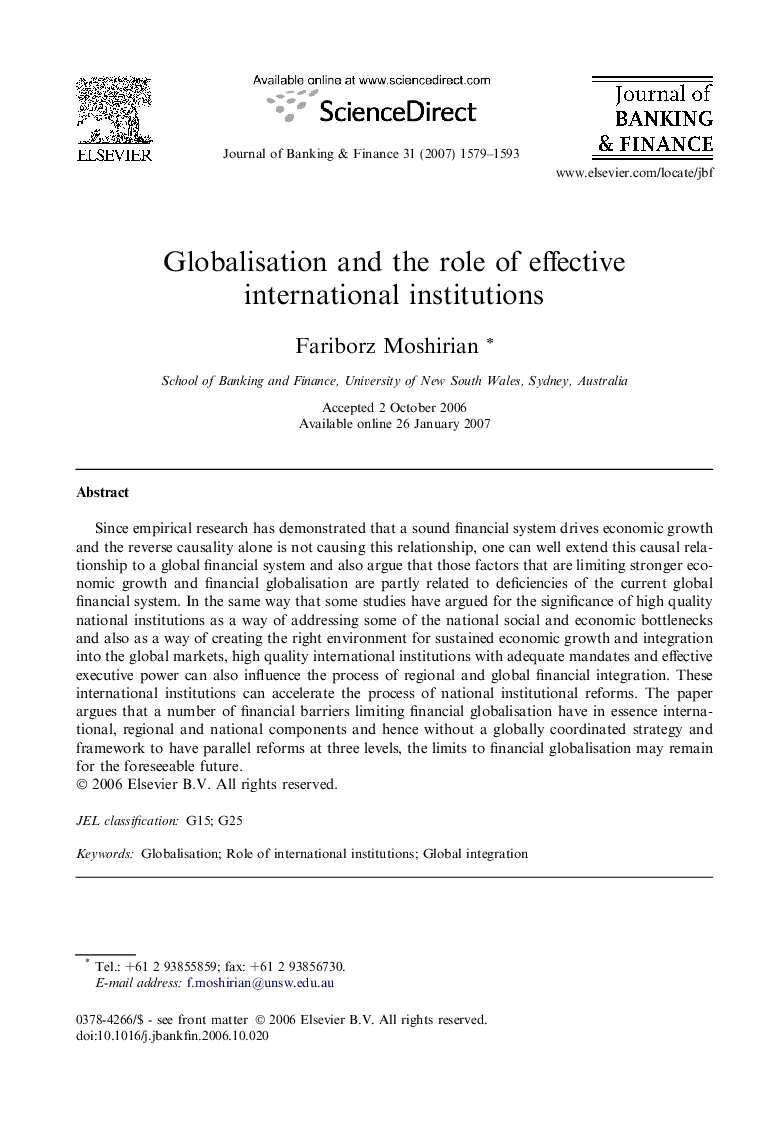| Article ID | Journal | Published Year | Pages | File Type |
|---|---|---|---|---|
| 5091287 | Journal of Banking & Finance | 2007 | 15 Pages |
Abstract
Since empirical research has demonstrated that a sound financial system drives economic growth and the reverse causality alone is not causing this relationship, one can well extend this causal relationship to a global financial system and also argue that those factors that are limiting stronger economic growth and financial globalisation are partly related to deficiencies of the current global financial system. In the same way that some studies have argued for the significance of high quality national institutions as a way of addressing some of the national social and economic bottlenecks and also as a way of creating the right environment for sustained economic growth and integration into the global markets, high quality international institutions with adequate mandates and effective executive power can also influence the process of regional and global financial integration. These international institutions can accelerate the process of national institutional reforms. The paper argues that a number of financial barriers limiting financial globalisation have in essence international, regional and national components and hence without a globally coordinated strategy and framework to have parallel reforms at three levels, the limits to financial globalisation may remain for the foreseeable future.
Related Topics
Social Sciences and Humanities
Economics, Econometrics and Finance
Economics and Econometrics
Authors
Fariborz Moshirian,
